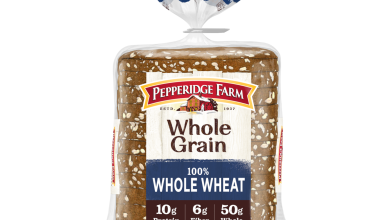Nutrient-Packed Lamb Spleen: A Superfood for Iron, Protein, and B Vitamins
Lamb Spleen (Raw) – Nutritional Breakdown and Health Insights
Lamb spleen, a less commonly known but highly nutritious organ meat, offers a rich profile of essential nutrients, making it a valuable addition to a varied and balanced diet. As an offal, it is often underappreciated but holds numerous benefits for those seeking to increase their intake of protein, iron, and several B vitamins.
Nutritional Information per 100g of Raw Lamb Spleen
| Nutrient | Amount |
|---|---|
| Energy | 101 kcal |
| Protein | 17.2 g |
| Fat | 3.1 g |
| Saturated Fat | 1.03 g |
| Carbohydrates | 0.0 g |
| Fiber | 0.0 g |
| Sugar | 0.0 g |
| Calcium | 9.0 mg |
| Iron | 41.89 mg |
| Magnesium | 21.0 mg |
| Phosphorus | 280.0 mg |
| Potassium | 358.0 mg |
| Sodium | 84.0 mg |
| Zinc | 2.84 mg |
| Copper | 0.121 mcg |
| Manganese | 0.051 mg |
| Selenium | 32.4 mcg |
| Vitamin C | 23.0 mg |
| Thiamine (B1) | 0.047 mg |
| Riboflavin (B2) | 0.348 mg |
| Niacin (B3) | 7.895 mg |
| Vitamin B6 | 0.11 mg |
| Folate (B9) | 4.0 mcg |
| Vitamin B12 | 5.34 mcg |
| Vitamin A | 0.0 mcg |
| Vitamin E | 0.0 mg |
| Vitamin D2 | 0.0 mcg |
Health Benefits and Nutritional Insights
Lamb spleen is an excellent source of protein, offering a solid 17.2 grams per 100 grams of raw meat, which helps in muscle repair and overall body function. This protein-rich offal is especially beneficial for those following high-protein diets or for individuals looking to build lean muscle mass.
In addition to its protein content, lamb spleen is an exceptionally rich source of iron, providing nearly 42 mg per 100 grams, which is over twice the daily recommended intake for most adults. Iron is crucial for the production of hemoglobin and helps transport oxygen throughout the body. This makes lamb spleen an excellent option for individuals with iron deficiencies or those at risk, such as pregnant women, vegetarians, and athletes.
This organ meat is also packed with a variety of B vitamins, including niacin, riboflavin, thiamine, and vitamin B6, all of which contribute to various metabolic processes. Niacin (Vitamin B3) helps with energy production and the health of the skin, while riboflavin (Vitamin B2) supports cell function and the metabolism of fats, drugs, and steroids. Vitamin B6 plays a role in brain health, and thiamine (Vitamin B1) is crucial for nerve function.
Lamb spleen is also a good source of essential minerals such as phosphorus, magnesium, and potassium. Phosphorus aids in the formation of bones and teeth, while magnesium supports muscle function, and potassium helps regulate fluid balance and nerve signaling.
The presence of selenium (32.4 mcg) in lamb spleen is another standout feature. Selenium is a powerful antioxidant that plays an important role in immune function and thyroid health, and it also helps protect the body against oxidative stress.
Allergen Information
Lamb spleen, like most animal organ meats, contains proteins that can potentially trigger allergic reactions in sensitive individuals, particularly those with a known allergy to lamb or other meats in the sheep family. It is advised to consult with a healthcare provider before introducing lamb spleen into your diet if you have any concerns regarding food allergies.
Dietary Preferences
Lamb spleen is suitable for several dietary preferences, though it’s important to note that it may not fit into all eating plans:
- Paleo: As a natural source of protein and nutrients, lamb spleen fits perfectly within the paleo diet.
- Keto: With its high protein and fat content, it can be a valuable addition to a ketogenic diet.
- Whole30: Lamb spleen is considered compliant with Whole30, as it is an unprocessed whole food.
- Carnivore: As a nutrient-dense animal product, lamb spleen is ideal for those following a carnivore diet.
- Iron Deficiency: For those struggling with iron deficiency anemia, lamb spleen is a powerhouse food to help boost iron levels.
Cooking Tips and Advice
Lamb spleen is often used in traditional dishes, especially in various Mediterranean, Middle Eastern, and North African cuisines. It is typically cooked by grilling, stewing, or braising. Since it is an organ meat, it benefits from slow cooking methods that help tenderize the fibers while enhancing its rich, savory flavor.
When preparing lamb spleen, it is recommended to remove any blood vessels or connective tissue to ensure a smoother texture. Marinating the spleen in acidic solutions (like lemon juice or vinegar) or spices can help reduce any strong flavors and make it more palatable for those unaccustomed to organ meats.
For an easy approach, try incorporating lamb spleen into stews or casseroles, where its robust taste can blend with other ingredients like vegetables, herbs, and grains.
Conclusion
Lamb spleen is an underappreciated yet nutrient-dense food, offering a potent combination of protein, iron, vitamins, and minerals. It is particularly beneficial for individuals looking to boost their iron intake or support metabolic health. While it may not be for everyone, those who enjoy offal will find lamb spleen to be a flavorful and healthful addition to their diet. Whether grilled, braised, or stewed, lamb spleen can add variety to your meals while providing an array of nutritional benefits.








